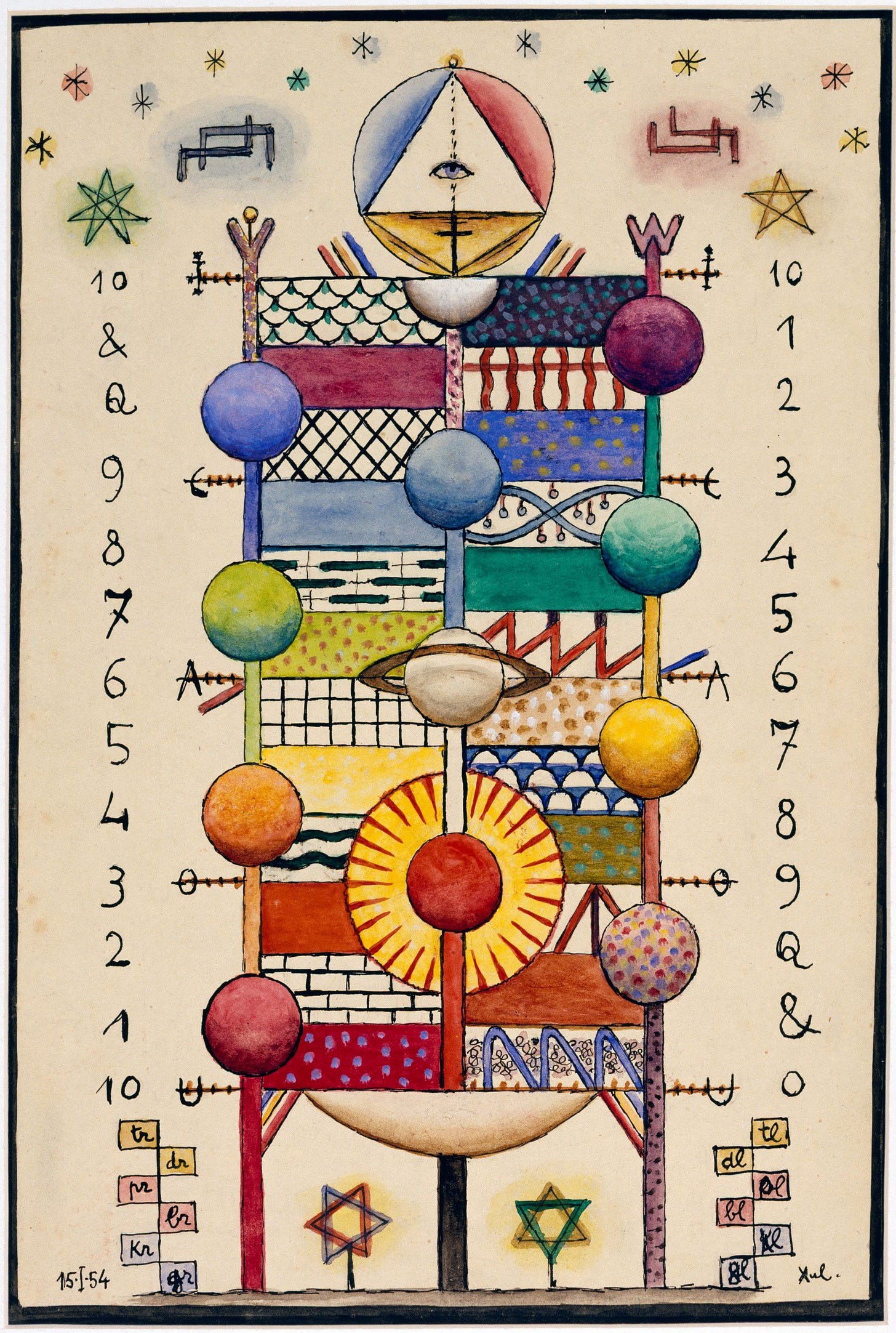In 1940, Jorge Luis Borges published a story called “Tlön, Uqbar, Orbis Tertius” in the Argentine literary magazine, Sur. The story features himself, novelist Adolfo Bioy Casares, and painter Xul Solar as characters—Casares and Solar were real people who Borges knew well.

The story relates their accidental discovery of a massive hoax, a secret society called Orbis Tertius that sought to create a fictional planet, Tlön, that existed with its own philosophical rules, utterly different from our reality. Uqbar is a historical country on Tlön. Their discovery of this intellectual conspiracy first happens when Casares reads an encyclopedia entry about Uqbar. Further research in Brazil and Argentina uncovers Tlönian books, filling out an entire history, science, and philosophy of this world. In the 1940s, objects from Tlön start to appear in our world—first a compass engraved with Tlönian script, then some small, impossibly heavy cones made of Tlönian metal. By the end of the story, knowledge of Tlön has become widespread. The reality of this fictional world begins to supplant our real world.
Almost immediately, reality “caved in” at more than one point. The truth is, it wanted to cave in. Ten years ago, any symmetry, any system with the appearance of order—dialectical materialism, anti-Semitism, Nazism—could spellbind and hypnotize mankind. How could the world not fall under the sway of Tlön, how could it not yield to the vast and minutely detailed evidence of an ordered planet?
This is from a translation of “Tlön, Uqbar, Orbis Tertius” by Nadrew Hurley, published in Collected Fictions.
Russia is, as far as I know, a real place with a real history. It is not a Tlönian invention. Unless one was reading about it on Wikipedia in China. A Chinese woman, known as “Zhemao “ after one of her aliases, wrote an elaborate but completely fictional history of Russia on Wikipedia. She is the subject of an article entitled “She Spent a Decade Writing Fake Russian History. Wikipedia Just Noticed” published in Sixth Tone, an online magazine about contemporary Chinese culture. According to her fictional profile, she was the daughter of a diplomat stationed to Russia and had a degree in Russian history. Her deception was only uncovered by accident when a writer researching Russia was interested in one of her fabrications of medieval Russian history tried to do further research, only to discover that there was no corroborating evidence anywhere. Zhemao ‘s deception was vast—she fabricated many Wikipedia articles. She claims that over a million words she wrote were deleted by Wikipedia once her deceptions were uncovered. Response in China has been mixed—obviously the editors of Wikipedia are shaken that a deception this big could exist, but she has fans who have suggested that she turn her fantastic imaginings into a novel.
She has been compared to Borges, but obviously a better comparison would be with “Obis Tertius”. She is like that fictional secret society creating a plausible country that convinces enough people that it begins to replace the real country. Her error, perhaps, was in calling her country “Russia.” If she had come up with a Chinese equivalent of Uqbar, she might have gotten away with it.
Of course, she may be a complete fiction. The question in such a case is just how deep the deception goes.
[Please consider supporting my work by becoming a patron, and you can also support my work by patronizing my online store. And one more way to support what I do here is to buy books through my bookstore. ]


Oh, my, very interesting and thought-provoking. What is real and what is not? Am I really writing this? Wonder if the Mighty Elon still thinks "this is all a simulation"?
Only Sidney Reilly knows for sure.♠️